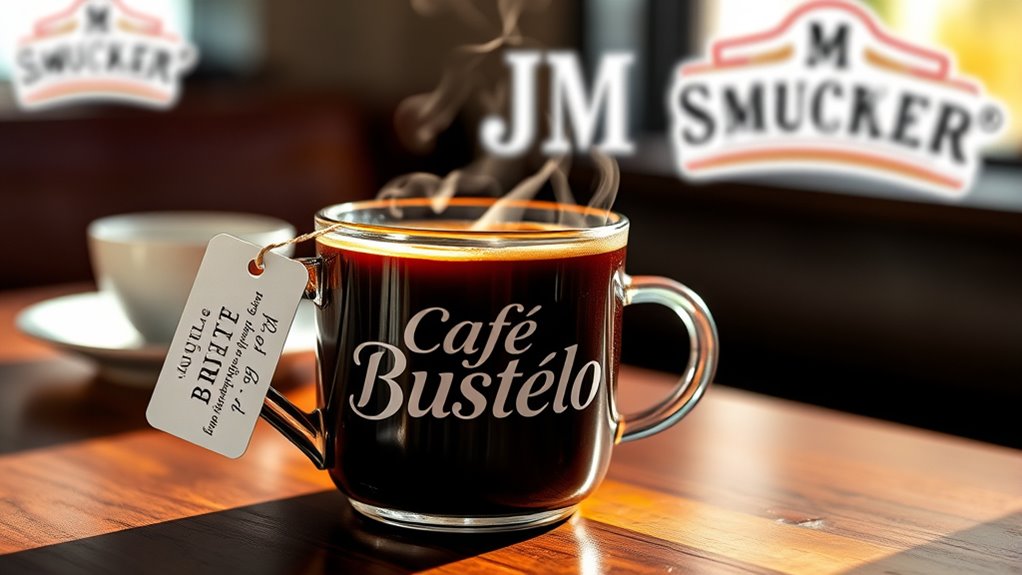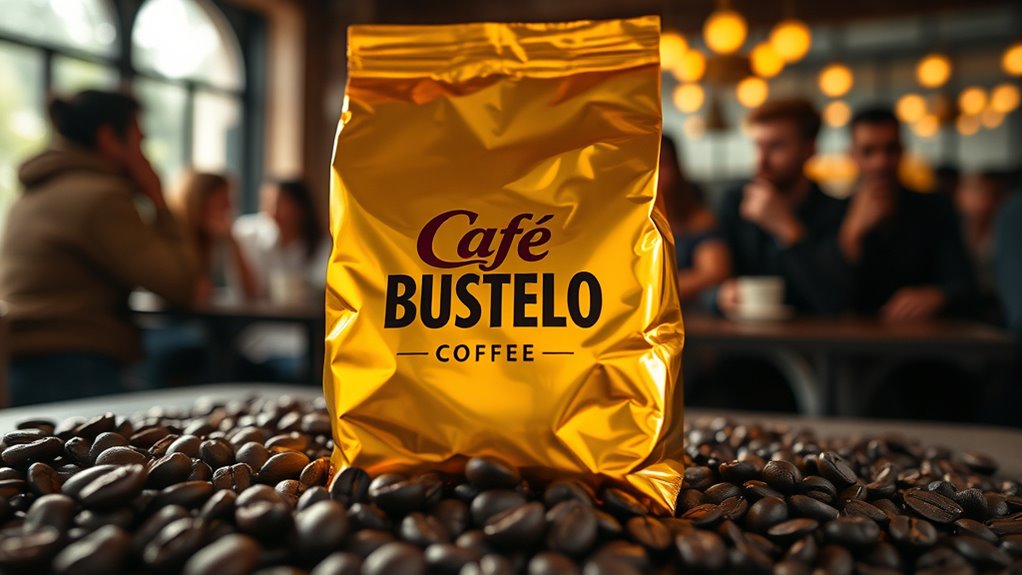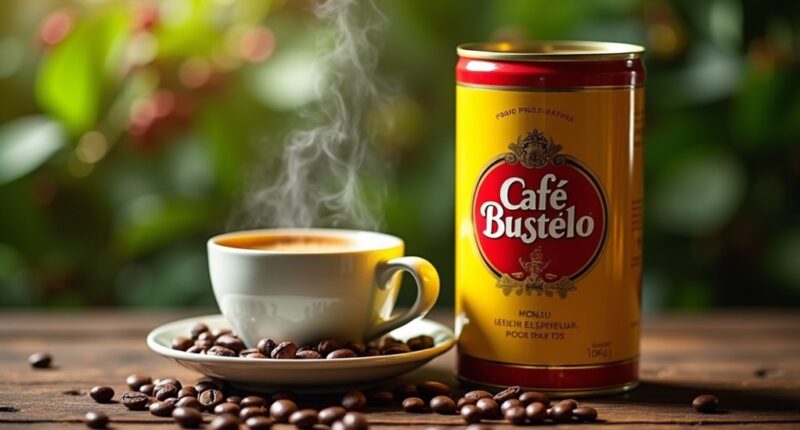So, why’s Café Bustelo so pricey? Well, it’s a combo of rising green coffee bean costs and pesky import tariffs that are driving your wallet wild. Those delicious beans are getting more expensive thanks to droughts and global inflation. Plus, the whole supply chain is a bit of a mess—transport fees are insane! So, when you sip that bold cup of coffee, just know you’re enjoying quality, even if it costs a bit more than you’d like. Stick around for more insights!
At a Glance
- Rising green coffee bean prices due to drought and inflation increase production costs for Café Bustelo.
- Tariffs on coffee imports significantly raise overall costs, impacting the price consumers pay.
- Sourcing coffee from over 20 countries adds complexity and increases transportation fees.
- Quality control measures and streamlined processes contribute to higher overhead costs.
- Strong consumer loyalty and demand for premium products allow for higher pricing strategies.
Impact of Tariffs on Coffee Import Costs

When you think about your morning coffee, you mightn’t realize how much tariffs can mess with your caffeine fix!
Tariffs can sneakily inflate your coffee costs, impacting your daily caffeine ritual more than you realize!
Those new tariffs, with rates soaring for some countries, are raising coffee import costs like crazy. You probably don’t want to pay more for your beloved brew, but that’s exactly what’s happening.
Tariff implications are causing market volatility, making prices jump around like a kid on a sugar high!
With Brazil’s coffee getting pricier, you’ll notice those costs trickling down to your favorite brands. Additionally, the increasing demand for low acid coffee is also influencing market prices, as consumers seek options that are easier on the stomach.
Rising Green Coffee Bean Prices
As you pour your morning cup of Cafe Bustelo, you might find yourself wondering why coffee prices seem to be climbing higher than your caffeine buzz!
Well, it’s all about rising green coffee prices. In early 2025, Arabica hit a jaw-dropping $4.41 per pound! Crazy, right?
Factors like drought in Brazil and global inflation are shaking things up. With price trends showing no signs of slowing down, you might feel the pinch at your favorite café. Additionally, the quality of water used in brewing can significantly affect the flavor profile of your coffee, making it even more worthwhile to invest in quality beans.
But hey, as we sip our brews, let’s appreciate the journey those beans took to reach our cups, even if it costs a bit more!
JM Smucker’s Pricing Strategy

JM Smucker’s pricing strategy has been quite the rollercoaster ride lately, with multiple price hikes hitting your favorite coffee brands like Folgers, Café Bustelo, and Dunkin’ At Home since June 2024.
It’s all about branding strategies and pricing psychology, folks! Consumers seem pretty tolerant of these price jumps, especially for brands they trust.
Even with flat sales volumes, they’ve managed to boost sales value by 11% in Q4 FY2025.
Despite stagnant sales volumes, they’ve achieved an impressive 11% increase in sales value for Q4 FY2025.
Interestingly, coffee consumption trends indicate that consumers are willing to pay more for premium products, which may explain the price increases.
But beware—if prices keep climbing, even loyal fans might start to sweat.
Supply Chain Challenges and Production Costs
Supply chain challenges and production costs can feel like a never-ending game of whack-a-mole, right? You’ve got sourcing complexity from over 20 countries, and each bean’s journey brings its own logistical challenges. Additionally, the quest for the finest Colombian coffee beans adds another layer of complexity to the supply chain.
| Factor | Impact on Costs | Solution |
|---|---|---|
| Coffee Origins | High transport fees | Diverse suppliers |
| Tariffs | Increased prices | Contingency planning |
| Multiple Locations | Higher overheads | Streamlined processes |
| Quality Control | Extra steps | Specialized equipment |
Consumer Behavior and Demand for Café Bustelo

When it comes to Café Bustelo, you can’t help but notice how much people love this brand. It’s all about that rich, bold flavor and the sense of community it brings.
Here’s why you might adore it:
- Consumer loyalty runs deep; folks stick with what they love.
- Market trends show a surge in iced coffee fans, especially under 35.
- Authenticity resonates with Latinx communities, keeping them coming back.
- Café Bustelo’s innovative products spark excitement and curiosity.
Additionally, the rich flavors of Puerto Rican coffee contribute to its allure, enhancing the overall experience for consumers.
Franchise and Brand Operational Expenses
Even though Café Bustelo isn’t your typical coffee shop franchise, its operational expenses are anything but simple. If they ventured into physical locations, you’d see franchise expenses soaring, especially with brand royalties that can take a bite out of sales. Here’s a quick look at what those costs could add up to:
| Expense Type | Estimated Cost Range | Notes |
|---|---|---|
| Franchise Fee | $100,000 – $500,000+ | For brand rights |
| Equipment Setup | $80,000 – $300,000 | For commercial space |
| Royalty Fees | 5% – 9% of gross sales | Ongoing brand royalties |
| Marketing Contributions | 2% – 5% of gross sales | For brand visibility |
| Distribution Agreements | Varies | Slotting fees apply |
The cost of entering the coffee market can be mitigated by using a 2-way coffee maker that allows for versatile brewing options in a smaller, more cost-effective space.





